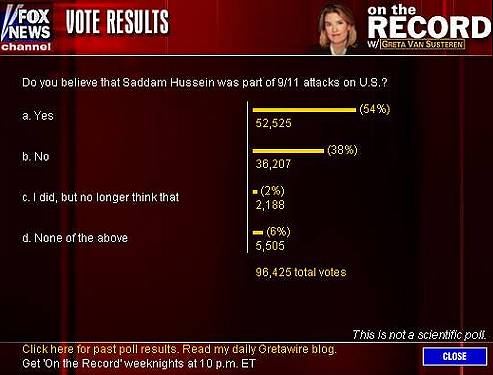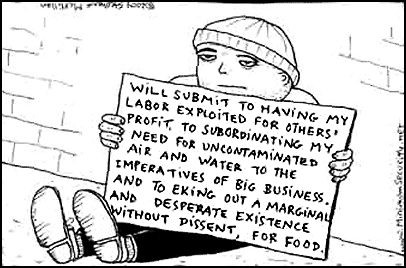The Old Hippie's Groovy Blog
I just came across these two articles in Dan Denning's newsletter, thought it was an interesting take on Iraq and the Brit's ideas on Liberals.
An Ottoman Solution to Iraq
by Lord Rees-Mogg
Is there an Ottoman solution to the future of Iraq? Before the First
World War and the defeat and disintegration of the Ottoman Empire,
there was no single centralized government for the whole of Iraq.
That was essentially a British creation in the aftermath of 1918.
Under the Ottoman Empire, there was a geographical region, called
Mesopotamia, which was divided into provinces. The northern province
was predominantly Kurdish and had oil deposits around Mosul. The
southern province was predominantly Shiite and also had large oil
deposits. There was a Sunni population in the center, now described
as the Sunni Triangle. And there was Baghdad.
Baghdad was a large trading city with a historic background. It was
the seat of the Ottoman administration, which was the Turkish
government of a largely Arab population. Baghdad also had a large
Jewish population, estimated at about 450,000 in 1908. The Jewish
merchants in Baghdad had interests throughout Asia. The Sassoons, for
instance, had a major trading business in Shanghai and a substantial
presence in India and London.
The aim of the interim government under Iyad Alawi is to hold
elections next January for a democratic government for the whole of
Iraq. That would maintain the single Iraqi state that was imposed by
the British. After two revolutions, that state fell into the hands of
Saddam Hussein and the Baath Party.
At best, this new democracy is going to be extremely difficult to
achieve. There are doubts whether democratic elections can be held
when the security situation is so bad. There are two major threats:
the Mahdi Army under the leadership of Muqtada al-Sadr, the young
Shiite cleric, and the post-Saddam and largely Sunni terrorists of
the Sunni Triangle.
Fallujah has become a no-go area for allied troops. If the situation
is much the same in January, it will be very difficult to hold fair
democratic elections in either the Shiite or the Sunni areas.
Probably the majority of Shiite voters are, in fact, moderates, who
would vote for candidates who wanted a democratic and multicultural
society. But there is a danger of a Shiite fundamentalist victory in
the south.
As the Shiites compose 60% of the population of Iraq, an election
might well produce a Shiite religious government of a fundamentalist
character, perhaps under the influence of Muqtada al-Sadr.
At present, it would be virtually impossible to hold any democratic
election in the Sunni Triangle and pretty difficult in Baghdad
itself. This would, surely, invalidate a nationwide election. The
Kurds would no doubt vote for some sort of Kurdish majority in the
north, but that Kurdish group would be in a minority in the country
as a whole.
If Iraq went back to something closer to the Ottoman pattern, one
would get a Shiite south, a Sunni center, a Kurdish north and a mixed
Baghdad, though, alas, Baghdad has had no Jewish population for the
last 50 years. The south and the north would be the oil-rich
provinces.
At present, each of these provinces, with the exception of Baghdad,
has its own militia. The three main provinces, however, have a
natural majority in religious or ethnic terms, an existing militia,
and their own social structure. Two of them are oil rich.
The Shiites are opposed to a multiprovince, or federal, solution.
They want to hold Iraq together as a single country, because they are
the majority in Iraq as a whole. Admittedly, the Shiites will not all
vote the same way, but they would have preponderant political weight.
The Sunnis were opposed to the federal solution because, under Saddam
Hussein, they were the dominant class. Only the Kurds would strongly
prefer an Iraq of provinces, and they do not have the strength to
make that happen on their own.
Whichever candidate wins the U.S. presidency in November will have to
work out a new strategy for the United States in Iraq. The present
strategy of democratic elections in January followed by gradual U.S.
withdrawal does not look promising. The reality is that there are
militias on the ground; the preconditions for further terrorism, or
even for a civil war, already exist. The preconditions for a
democratic and stable Iraq, as a single state, probably do not.
The problem of the Iraq elections, which are supposed to lead to a
constitution, impinge on the United States. At present, the U.S.
casualties are lower than they were earlier in the year, but Iraqi
police and military casualties are higher. The U.S. forces are the
reserve troops that form the ultimate support for the interim
government. How long will the United States go on accepting
casualties if there is no prospect of an exit?
***Fox Hunting
Finally, I got caught in a mob early this week. The English turned
out en-masse in Parliament Square to protest against a new law from
the government banning fox hunting, which the powers that be have
decided is cruel and not fit for an enlightened, progressive,
multicultural society.
I was on my way to a "power lunch" meeting at the Adam Smith
Institute here in London. London is a hotbed of think tanks and
institutes, a little like Washington. But the Adam Smith types seem
like the type I'd want to have a few drinks with.
The topic of the day was how far the ideas of Friederich Hayek have
permeated into the political leadership of the United Kingdom. The
top was bashed around by a motley crew of libertarians,
conservatives, and closet-anarchists (no names mentioned.)
It surprised me that the conclusion of quite a few members of the
group is that Liberal societies simply can't tolerate ill-liberal
citizens. Here I mean Liberal in the classic sense of the word.
Wikipedia defines a Liberal this way: "Liberalism is a political
current embracing several historical and present-day ideologies that
claim defence of individual liberty as the purpose of government. It
typically favours the right to dissent from orthodox tenets or
established authorities in political or religious matters. In this
respect, it is held in contrast to conservatism."
Now there's an idea. That governments are instituted among men to
secure rights that existed prior to the government itself and are
unalienable (incapable of being repudiated or transferred to
another). And an even more radical idea, no one can deny you what you
do with your liberty simply because they don't like what you do with
it. You can worship a different God even, or no God at all. And you
can spit in the eye of majority, symbolically, as long as you don't
really spit in anyone's actual eye.
The problem, said the roundtablers, is that ill-liberal people (read
Muslims, although it was thinly veiled), don't accept these basic
liberal tennants. And therefore, unless a people believe in the
substance of what constitutes (there's that word again, constitution)
a society, that society has the right to keep those people out,
presumably, with both laws and guns.
Interesting. It does make you wonder though, just how Liberal our own
societies are. For instance, England has the highest number of closed
circuit television cameras per capita in the world. From the moment I
leave my apartment in Fitzrovia to the second I step through the
front doors of the Sea Conatainer's Building, odds are I'm being
watched somewhere, by somebody.
That's a small example. There's bigger ones, like the fact that 2
million people protested against a war in Iraq that most of the
country didn't seem to want, and it didn't make one bit of
difference. Or that a majority in parliament can outlaw a sport
practiced for genereations by people in the country side, simply
because it doesn't like it.
America, of course, is no better, and probably worse. Americans now
tolerate routine invasions into our privacy at airports. Closed
circuit cameras are also becoming popular, as is monitoring speeding
violations remotely throgh stationary cameras. And of course there
are income taxes, which started in 1913, but got even more perverse
with Milton Friedman's lamentable innovation, withholding, which
began in 1943.
Call it preemptive taxation, taking an American's money before he's
even had a chance to put it in the bank. How liberal is that?
The list goes on and on. In fact, the "war" the State makes against
Liberty has been raging since the founding of the Republic. Private
citizens and their liberty are the consistent loser.
The truth is, we already live in an illliberal society. If Lenin woke
up today in London or Washingtion, he'd probably be pleased with all
the progress his ideas have made, although he'd be wondering why the
public urinals were not yet lined with gold (give Bernanke time.)
Lenin, of course, was wrong about the workers of the world uniting
against the capitalists. They didn't. They became capitaslists. The
capitalist system, as it turns out, has been pretty good to workers,
delivering them better services at cheaper prices, on average, all
over the world.
But with $44 trillion in debt, Americans today are born free, and
everywhere find themselves chained to a government which they can
neither change nor prevent from impoverishing future generations.
What is a lover of liberty to do?
Read the Rest of this Posting → Below The Fold ← (Permanent Link Here)





